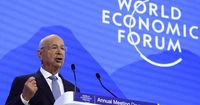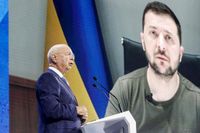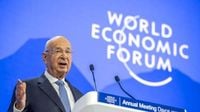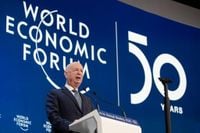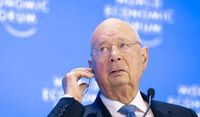Klaus Schwab, founder of the World Economic Forum (WEF), has officially resigned from his position as Chair of the Board of Trustees, marking a significant transition for the organization he established more than five decades ago. On Monday, April 21, 2025, Schwab announced his resignation, stating, "Following my recent announcement, and as I enter my 88th year, I have decided to step down from the position of Chair and as a member of the Board of Trustees, with immediate effect." His departure signals the end of an era for the WEF, a platform that has become synonymous with global business and political leadership.
Schwab’s resignation was accepted during an extraordinary meeting of the WEF board held on April 20, 2025. In the wake of his departure, Vice Chairman Peter Brabeck-Letmathe has been appointed as the interim chairman while a search committee is formed to identify a permanent successor. The board expressed gratitude for Schwab's 55 years of leadership, highlighting his role in creating a forum for dialogue among world leaders and addressing pressing global issues.
Founded in 1971, the WEF began as a small gathering in Davos, Switzerland, and has since evolved into a high-profile annual summit that attracts influential figures from across the globe. The organization aims to foster collaboration among leaders from various sectors to tackle complex challenges facing the world today. The board stated, "At a time when the world is undergoing rapid transformation, the need for inclusive dialogue to navigate complexity and shape the future has never been more critical."
Despite the WEF's ambitious goals, Schwab's tenure has not been without controversy. Critics argue that the annual gatherings in Davos have become elitist, often disconnected from the realities faced by ordinary people. This sentiment has been echoed by voices across the political spectrum, with many viewing the forum as a safe space for the corporate world to lobby governments without oversight.
Schwab, who was born in Ravensburg, Germany, on March 30, 1938, has been a prominent advocate for globalization, often seen as a driving force behind its advancement. However, in recent years, the WEF has faced increasing scrutiny, particularly following the backlash against globalization that has emerged in various parts of the world. This backlash has manifested in the rise of populist politicians and growing public discontent with the existing economic order.
In a 1996 opinion piece, Schwab and his colleague Claude Smadja warned of the potential consequences of this discontent, noting, "A mounting backlash against globalization's effects, especially in the industrial democracies, is threatening a very disruptive impact on economic activity and social stability in many countries." This foresight has proven prescient as the WEF navigates a landscape marked by geopolitical tensions and economic uncertainty.
Schwab's vision for the WEF has always been to create a collaborative platform for policymakers and business leaders to discuss and address major global challenges. Over the years, the forum has expanded its agenda to include issues such as climate change, cybersecurity, and financial stability, reflecting the evolving priorities of the global community.
As Schwab steps down, the WEF is poised to undergo a significant transformation. The board's acknowledgment of his achievements underscores the impact he has had on shaping the organization and its mission. However, as the WEF prepares to move forward without its founding figure, questions remain about its ability to adapt to a rapidly changing world.
The WEF's annual meeting in Davos has become a symbol of the global elite, often referred to as "Davos Man." This term encapsulates the perception of a privileged class that convenes to discuss issues that may seem distant from the everyday lives of ordinary citizens. Critics have pointed out that the forum's gatherings often reinforce existing power structures rather than challenge them.
In light of these criticisms, the WEF has sought to address concerns about its internal culture. Reports have emerged of investigations into allegations of harassment and discrimination within the organization, prompting calls for greater accountability and transparency. The WEF has denied these allegations, emphasizing its commitment to fostering a positive and inclusive environment.
As Schwab transitions out of his role, the WEF faces the challenge of redefining its identity and mission in a world increasingly skeptical of globalization and elite gatherings. The search for a new chair will be crucial in determining the direction of the organization moving forward. The WEF's ability to remain relevant and effective in addressing global issues will depend on its willingness to engage with diverse perspectives and adapt to the changing landscape.
In conclusion, Klaus Schwab's resignation marks a pivotal moment for the World Economic Forum and the global discourse on leadership and collaboration. As the organization embarks on a new chapter, it must grapple with the complexities of a world in flux, striving to fulfill its mission of improving the state of the world while addressing the concerns of a diverse and often skeptical audience.
